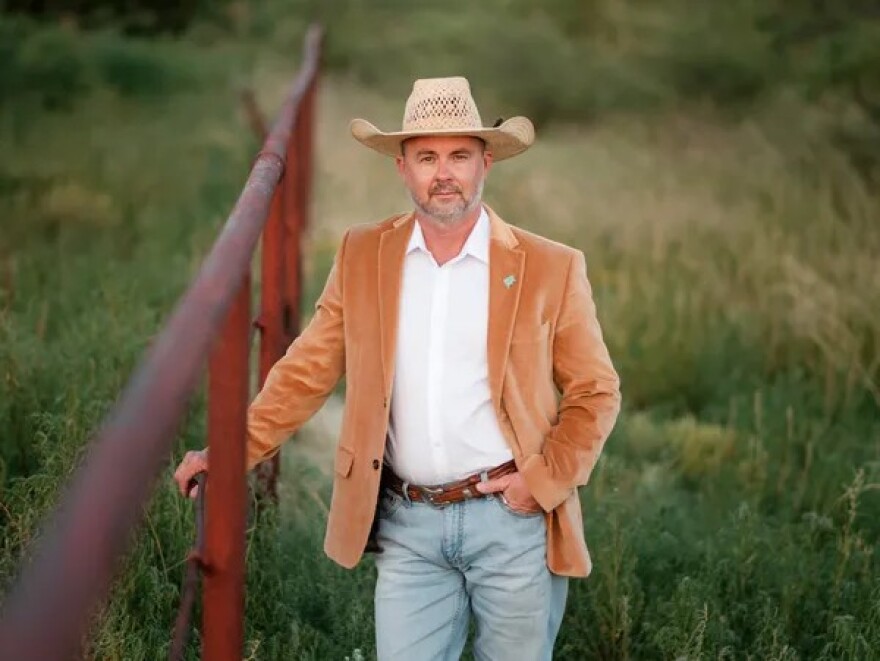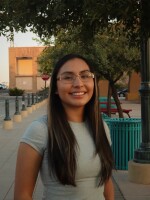KRWG Public Media is covering the New Mexico Public Land Commissioner race. Republican candidate Michael Perry spoke to Abigail Salas.
Abigail Salas:
Can you share with us why you are running for land commissioner?
Michael Perry:
You know, that's a good question. I think my background and my resume is prevalent to the job. 22 years in the game and fish department, I've got a degree in wildlife management, wildlife science, minor in criminology. I worked for the agency and started in 1995 and finished up with them in 2016, I guess. and then I went to the state land offices as a assistant commissioner over fields. So I know a lot, this interview process that we just went through was very, I don't want to say easy for me, but it's the background, it's everything that I've already done and that I've already performed on both sides. Now we always need to evolve the scenario and evolve the situation, and I absolutely want to do that. I want to get better. I want the state land office to get better. I want us to have more of an emphasis on habitat and watershed management, which is what I started doing as assistant commissioner, but we need to get a little bit better on those things. We need to care of our land.
Abigail Salas:
If elected, what are some issues that you would like to address?
Michael Perry:
Well, the one thing that I think we need to start doing is evaluating our leases a little bit better and make sure that they're fair. I mentioned to you that the oil and gas industry pays a 25% royalty rate that they talked about just being voted in, but then our solar and our electric is paying somewhere between 3 and 6, and that's negotiated. Oil and gas has a reclamation fee that is a tax upon oil and gas, so they go back and the state fixes, actually issues that they haven't. There isn't one of those such creatures for the wind energy or the solar energy. So if those places go up, if the bond doesn't cover them, the state's left with that. The other thing is all this energy is going to other states. That one that I told you that's in Chavez County, 100% of the energy goes to Arizona. So they come over here and lease our property at a cheap rate because we're a poor state, quote unquote. And then they take all their energy and promote growth in Phoenix. And I don't think that's fair, particularly at a 3% royalty rate where oil and gas is kicking in 25%, and oil and gas pays $2.6 billion towards schools, and the green energy is paying $10 million. So who's really getting their fair share here? It's not very fair, in my opinion. And I say that because I said earlier, there's been a a shift in economics. Oil and gas prices are higher right now, so you can almost be dumb and make money at it. But what's happened is over the last eight years, 20% reduction in state land produced oil, a 20% increase of production on BLM ground. BLM has a 14% lease. Of that 14%, 40% is kicked back to the state. 40%, so we get we lost 20% of the consumers that go to the BLM, we get 40% of 14%. If we keep them on state land and we're doing efficient work, we're going to get 25% of the royalty rate. So we're going to make a lot more money. Right now we're making money on state land because of oil and gas, but it's because of the oil and gas, it's produced high right now.
Abigail Salas:
And how do you plan on getting these issues that you brought up done if you're in that role?
Michael Perry:
Well, I think the one thing you really got to do is if we're talking about a fairness issue, you just be fair. That's not hard. You can't treat one kid different than the other. That's not fair. You can't treat anything different than the other. You should be fair. So I think we need to establish, and first we've got to identify the fact that sometimes we might not be fair. And if we're not fair, how do we get that way? I don't think we do enough habitat projects. I don't think we do enough timber management. And because I think that, I can back that up and say our catastrophic wildfires have increased a lot in New Mexico, and you know that. The timber industry was killed in the 90s. We used to have 13 billion board feet of production in the United States. Now we're down to 3 billion board feet of production in the United States. A sheet of plywood costs $70, and we got trees standing on the top of trees because we're in a preservation concept and not a conservation. Conservation is a wise use of natural resources. Preservation is not use it, put it over there. And what's happening over time, the 30 years of preservation, is we're burning our landscape very, very hot, and then we're having this huge watershed issue. We're not doing good by the land. We're not doing good at all by the land. We need to get better.



